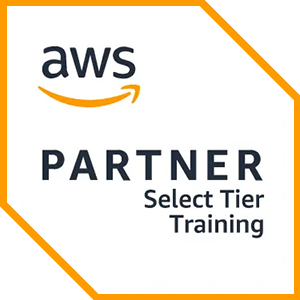Module 1: Introduction to Microsoft Power Platform
This module will provide the learner with background about Microsoft Power Platform and its 4 key components: Power Apps, Power Automate, Power BI, and Power Virtual Agents.
Lesson
- Microsoft Power Platform overview
- Lab : Validate lab environment
After completing this module, students will be able to:
- Identify the key components of Microsoft Power Platform
Module 2: Work with Dataverse
In this module, students will learn about creating a data model in Microsoft Dataverse, including importing data, using tabular reporting options, and configuring security. They will also learn about creating easy AI with AI Builder.
Lesson
- Work with tables
- Understand data types and behavior
- Configure security settings
- Lab : Create an app
- Lab : Create tables and columns
- Lab : Create relationships
- Lab : Additional table settings
After completing this module, students will be able to:
- Understand tables, columns, rows, and relationships
- Configure a data model in Dataverse
- Work in an environment within the Microsoft Power Platform admin center
Module 3: Make model-driven apps with Power Apps
In this module, students will learn the business value of Power Apps model-driven apps. They will then learn to how to configure and design them, including user experience considerations.
Lesson
- Building blocks of model-driven apps
- Design model-driven apps
- Forms and views
- Lab : App designer
- Lab : Modify forms
- Lab : Modify views
After completing this module, students will be able to:
- Connect to data in Power Apps
- Build a Power Apps model-driven app
- Design an application user experience
Module 4: Make canvas apps with Power Apps
In this module, students will learn the business value of Power Apps canvas apps. They will then learn to how to configure and design them, including user experience considerations.
Lesson
- Power Apps studio
- Canvas apps capabilities
- User experience
- Lab : Build a canvas app
- Lab : Work with data and services
- Lab : User experience
After completing this module, students will be able to:
- Build a Power Apps canvas app
- Configure user experience in a canvas app
- Understand the building blocks of a canvas app
Module 5: Make portals with Power Apps
In this module, students will learn the business value of Power Apps portals. They will then learn to how to access Dataverse data in a portal and how portal authentication works.
Lesson
- Power Apps portals architecture
- Access Microsoft Dataverse in your portal
- Authentication and user management
After completing this module, students will be able to:
- Understand how to use Dataverse data in a portal
- Recognize types of Power Apps portals for different audiences
- Register users for portal access
Module 6: Introduction to automation
In this module, students will learn about business rules and when they can be used. Students will also get an overview of Power Automate.
Lesson
- Business rules
- Power Automate overview
- Lab : Create users
- Lab : Create security roles
- Lab : Configure a new business rule
- Lab : Advanced business rules
After completing this module, students will be able to:
- Create users and grant security roles
- Create and configure security roles
- Create and configure advanced business rules
Module 7: Build Power Automate cloud flows
In this module, students will learn the fundamentals of cloud flows, including triggers and flows. They will create two flows, including an approval flow.
Lesson
- Fundamentals of cloud flows
- Triggers
- Actions
- Lab : Create a flow
- Lab : Build an approval flow
After completing this module, students will be able to:
- Create cloud flows
- Understand the fundamentals of cloud flows
- Use triggers and actions
Module 8: Build Power Automate desktop flows
In this module, students will learn what desktop flows are and how they are created. Students will also learn how desktop flows are used and how to use process advisor to better understand places to streamline workflows.
Lesson
- Build desktop flows
- Use desktop flows
- Process advisor
After completing this module, students will be able to:
- Understand the value of desktop flows
- Identify when to use desktop flows and how process advisor can help
Module 9: Build business process flows
In this module, students will learn the value of business process flows and how to use the business process flow designer. They will also practice building business process flows and learn how they can be automated.
Lesson
- Why use business process flows
- Using business process flow designer
- Automating your business process flow
- Lab : Build a business process flow
- Lab : Build a branching business process flow
After completing this module, students will be able to:
- Create business process flows
- Use the business process flow designer
- Know how to add automation to a business process flow
Module 10: Build chatbots with Power Virtual Agents
In this module, students will learn how to automate customer interactions with a chatbot using Power Virtual Agents.
Lesson
- Create a chatbot
- Configure topics
- Automate and integrate
- Configure entities
- Test and publish chatbots
- Lab : Build a chatbot
After completing this module, students will be able to:
- Create a chatbot
- Include a flow in a chatbot
- Create topics and entities
Module 11: Analyze data with Power Bi
In this module, students will learn how to work with Power BI Desktop and Power BI Service to analyze data and create visualizations.
Lesson
- Use tabular reporting options in Dataverse
- Use charts and dashboards in Dataverse
- Get started with Power BI
- Model data in Power BI
- Create visualizations and dashboards
- Publish and share in Power BI
After completing this module, students will be able to:
- Create visualizations
- Consume data in Power BI
- Export data visualizations for stakeholders
Module 12: Putting it all together
In this module, students will learn how the concepts of this course pull together and how to use functional consultant skills on Microsoft Power Platform engagements. They will also learn how solutions are used in Microsoft Power Platform and will be introduced to AI Builder.
Lesson
- Using solutions
- AI Builder
- Consultant skills
- Lab : Build charts
- Lab : Build dashboards
- Lab : Build delete data
- Lab : Build a Word template
- Lab : Build an Excel template
- Lab : Duplicate detection
- Lab : Import data
- Lab : Export data
After completing this module, students will be able to:
- Understand how the concepts of this course work together
- Manage solutions in Microsoft Power Platform
- Use AI Builder to create and manage models
- Apply functional consultant skills




























 United Kingdom
United Kingdom Germany
Germany Denmark
Denmark Sweden
Sweden Italy
Italy Netherlands
Netherlands Finland
Finland















 Duration
Duration
 Delivery
Delivery  Price
Price